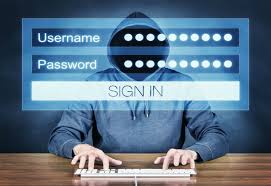 What is the one thing that almost all of us have had more of than before the COVID-19 pandemic…time! We may have been industrious and launched into home improvement efforts, we may have binged any number of offerings on our screens, we may have read War and Peace, or we may have spent way more time on-line than we had before the pandemic. Well, this last one cuts across age segments with adults 65 years of age and older spending a fair bit more time at their computers as well. Unfortunately, the cyber criminals have been hyper-industrious as well. The result has been a new type of Malware appropriately called “CoronaVirus”…seriously.
What is the one thing that almost all of us have had more of than before the COVID-19 pandemic…time! We may have been industrious and launched into home improvement efforts, we may have binged any number of offerings on our screens, we may have read War and Peace, or we may have spent way more time on-line than we had before the pandemic. Well, this last one cuts across age segments with adults 65 years of age and older spending a fair bit more time at their computers as well. Unfortunately, the cyber criminals have been hyper-industrious as well. The result has been a new type of Malware appropriately called “CoronaVirus”…seriously.
For those of you with a Windows operating system, you may be familiar with WiseCleaners.com. It’s an application that provides free utilities that help improve a computer’s operation. There is a phishing website that poses as WiseCleaners.com, but it is called WiseCleaners.Best. The unsuspecting individual who looks to download the advertised disk clean up utility or the defragmentation software during this downtime will actually be opening the door to cyber thieves. The malware will download from a computer the unsuspecting user’s logon information, cookies, contact emails and a host of other “secure” information.
Other hackers are sending emails that present as safety alerts from a company where your older loved one may have an account, and the alert contains a link to the new protocols that the unsuspecting can click to visit. Globally, there have been emails from a purported doctor with the World Health Organization that share where there are COVID outbreaks near the user. The same invasion and harvesting of sensitive information follows.
Please consider these “health tips” for your older loved one during this time of COVID:
- Don’t click on links; instead, type the address directly into the browser.
- Don’t download attachments; especially from sources that you cannot verify.
- Beware of promotions; this is especially for those that are too good to be true.
- If it says CLICK NOW, don’t.
- Don’t give personal info; credit cards, social security, medical information, etc.
- Safety first; use strong passwords and password management tools.
- Keep your computer current; all apps and devices should be up to date.
Charlotte Bishop is an Aging Life Care Advisor, Geriatric Care Manager and founder of Creative Care Management, certified professionals who are geriatric advocates, resources, counselors and friends to older adults and their families in metropolitan Chicago. She also is the co-author of How Do I Know You? A Caregiver’s Lifesaver for Dealing with Dementia.





